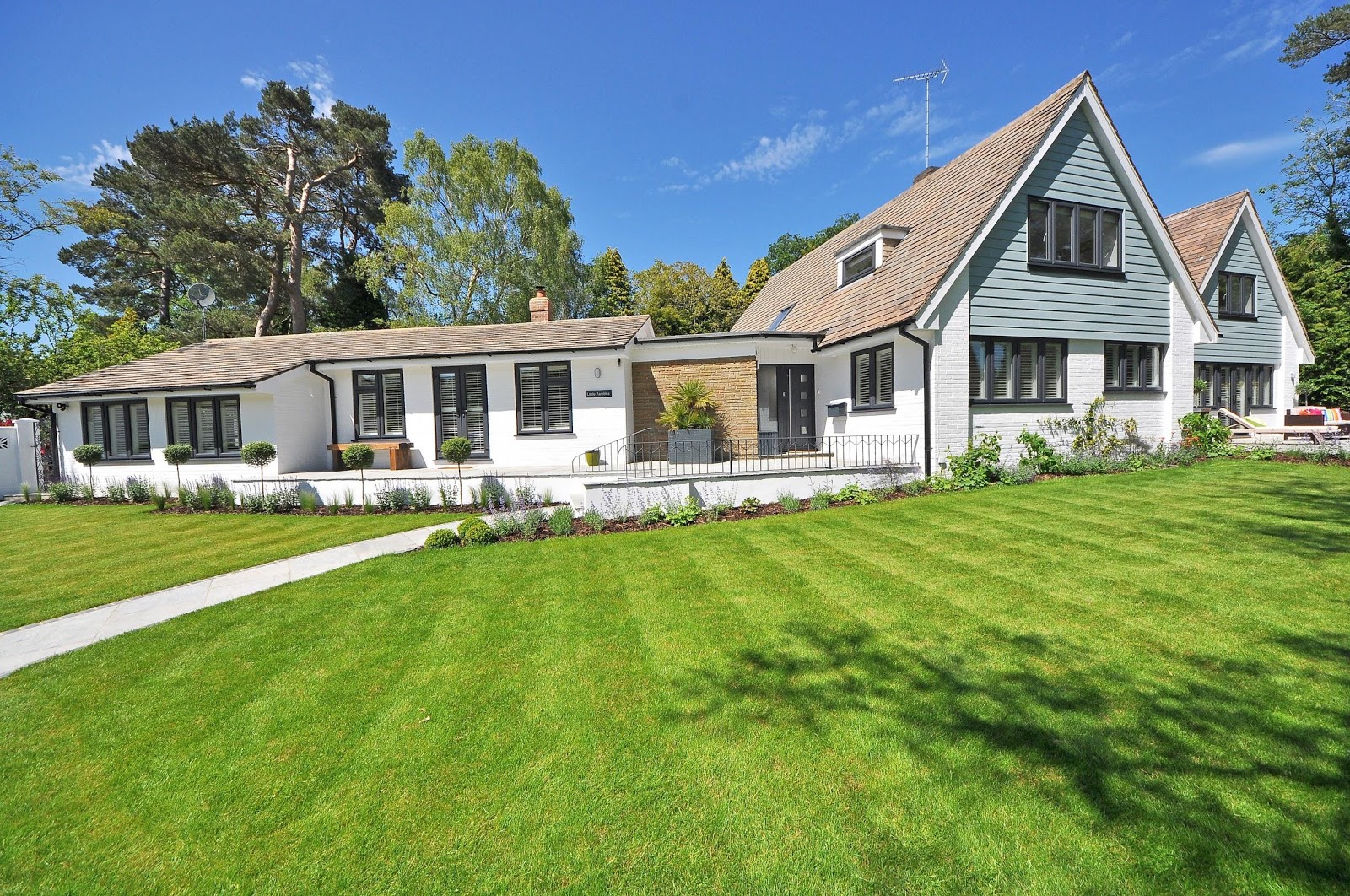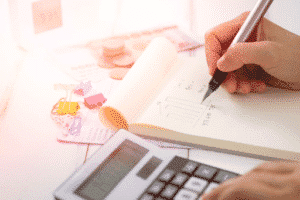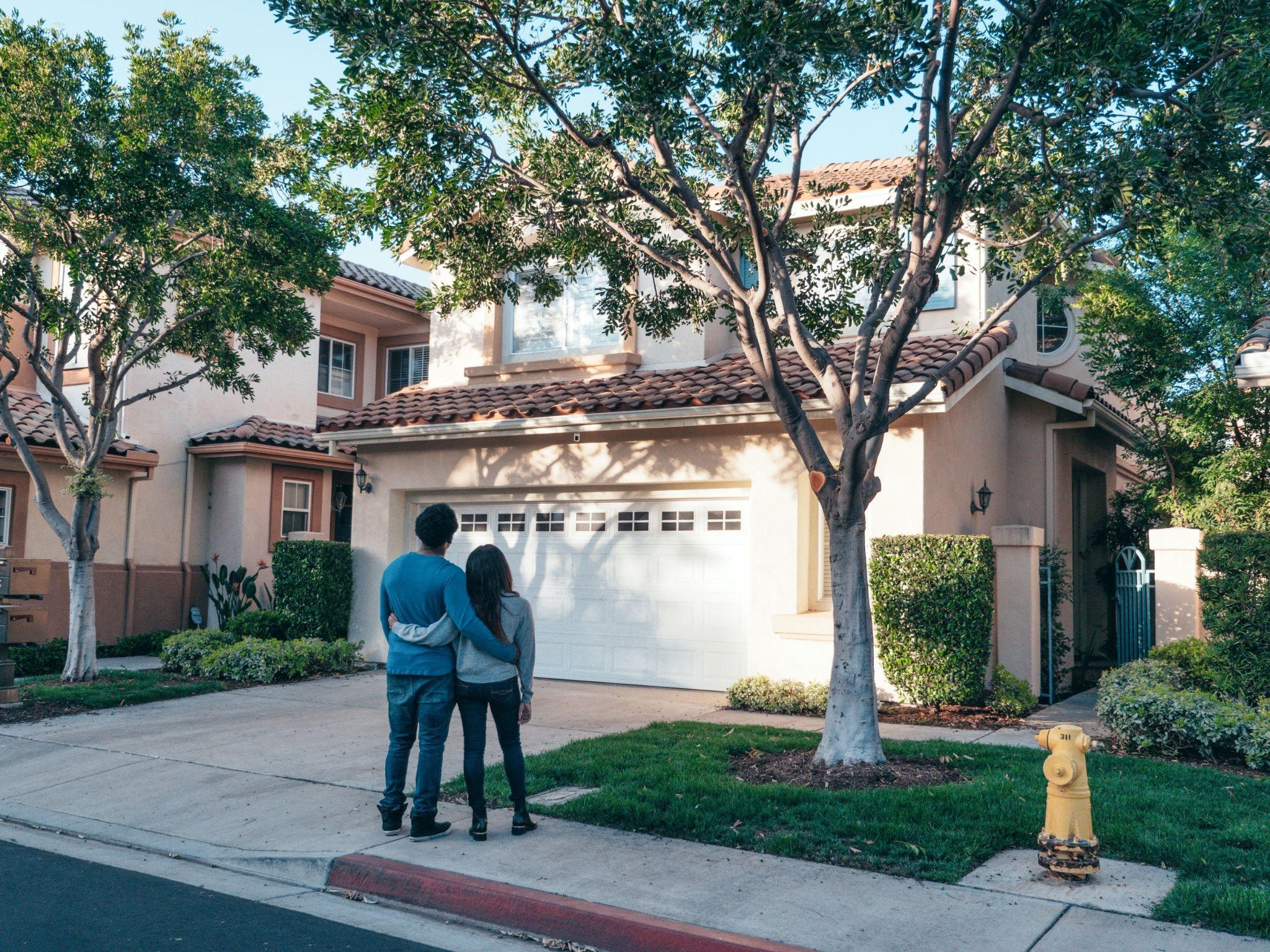Adulthood comes quickly, and with it comes many unexpected responsibilities. These responsibilities include shopping for groceries, washing the laundry… and dishes, considering the possibilities of roommates or a spouse, or even raising the much shorter roommates, aka kids.
One of the ideas that come with adulthood is owning your own home.
Buying a house is something you’ll consider sooner or later because, true or not, owning a home is a sign of stability and maturity. While you may just be tired of renting, there are other great reasons to buy a house. One good reason is that our tax laws favor homeowners, so ownership offers an excellent tax shelter.
Ready to buy a home? see how Mares Mortgage has helped buyers save more!
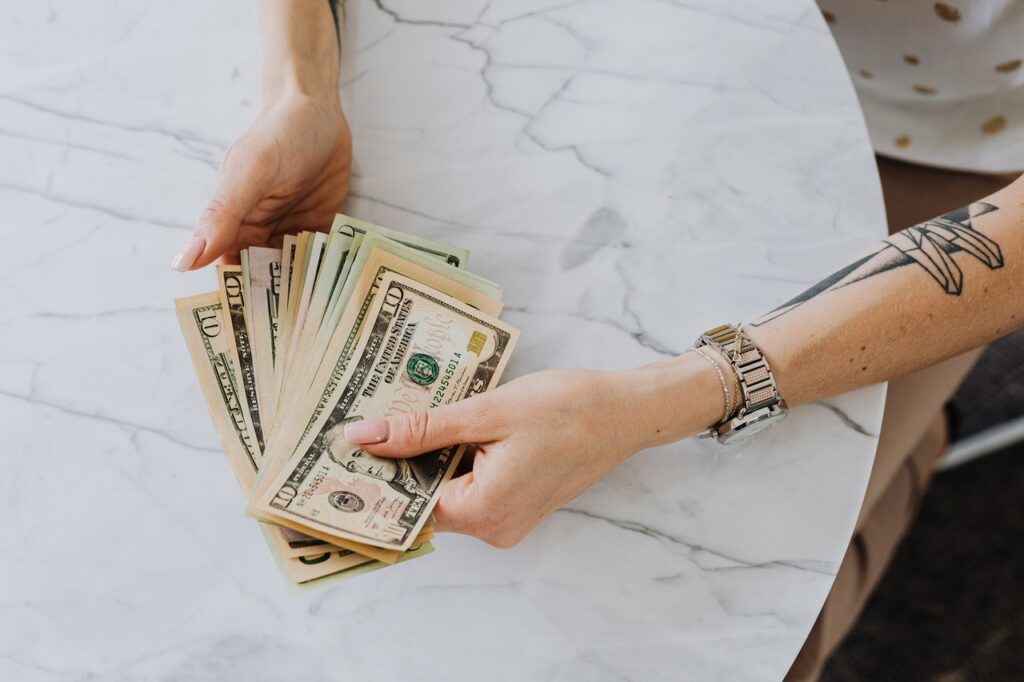 Apart from a steady job, there are several ways to account for a steady financial situation. This could be through investments in real estate, the stock market, a part-time “side hustle” where you have followed your passion and turned it into a prosperous business on the side.
Just take a look at your finances, and see what the recurring monthly expenses are. Buying a house comes with additional costs such as a mortgage, utilities, and taxes, for the first few years. This means your current finances should cater to these costs as a pointer that you can afford and are ready to buy a house.
Learn the benefits both of locking in a payment that won’t change for 30 years and having a place to start your very own business that can act as a tax write-off. In any case, you should begin to consider pooling your savings towards a new home.
Apart from a steady job, there are several ways to account for a steady financial situation. This could be through investments in real estate, the stock market, a part-time “side hustle” where you have followed your passion and turned it into a prosperous business on the side.
Just take a look at your finances, and see what the recurring monthly expenses are. Buying a house comes with additional costs such as a mortgage, utilities, and taxes, for the first few years. This means your current finances should cater to these costs as a pointer that you can afford and are ready to buy a house.
Learn the benefits both of locking in a payment that won’t change for 30 years and having a place to start your very own business that can act as a tax write-off. In any case, you should begin to consider pooling your savings towards a new home.
 Are you about to have a child? Then you definitely need more space. This is the perfect time to buy your own home. It’ll give your children more space to move about freely, without bumping into each other and invading personal spaces.
You might also need more room if you want to set up a corner for yourself – to practice hobbies, work from home, etc. Some extra breathing room from the kids is always a great add, either way.
However, never make a move if your finances are not right. You may genuinely need more space, but buying a house is only a good idea if you can manage to cover the extra expenses that come with homeownership.
Are you about to have a child? Then you definitely need more space. This is the perfect time to buy your own home. It’ll give your children more space to move about freely, without bumping into each other and invading personal spaces.
You might also need more room if you want to set up a corner for yourself – to practice hobbies, work from home, etc. Some extra breathing room from the kids is always a great add, either way.
However, never make a move if your finances are not right. You may genuinely need more space, but buying a house is only a good idea if you can manage to cover the extra expenses that come with homeownership.
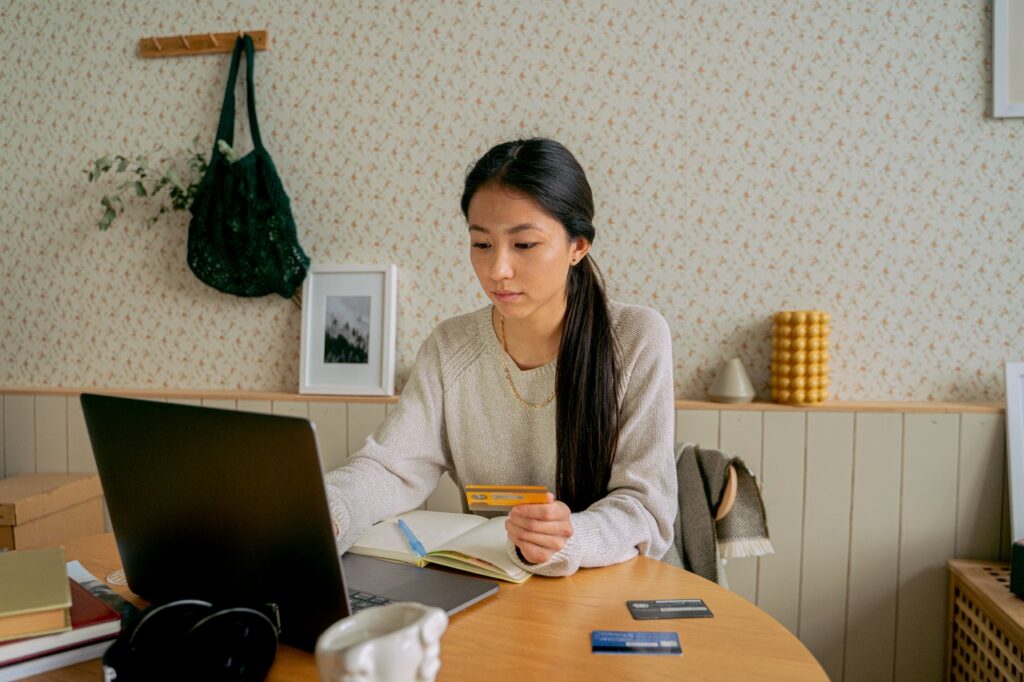 When you apply for a mortgage, banks, and lenders will look at your credit score in order to ensure that you can pay them back on time. If you have a good credit score, you should have no worries.
Your credit score reflects on your past expenditures and activities related to timely repayments. A credit score above 720 is considered stellar, but yours can be anywhere between 300 to 850. Our team will provide a complimentary credit report and analysis to teach you how to boost your points before getting locked into a higher interest rate.
A higher credit score means you are more likely to qualify for lower interest rates on your monthly mortgage. This will make your decision to become a homeowner a more reasonable prospect.
Only once you’ve established a good credit score, should you consider homeownership, lest you be straddled with extremely high-interest rates.
Related Video: How Does My Score Impact My Loan
Free Credit Check Tool – sponsored by the government to run your credit once per year or follow our link to get a free triple score, absolutely no official application required, and our website is completely www.maresmortgage.com/credit-authorization/
When you apply for a mortgage, banks, and lenders will look at your credit score in order to ensure that you can pay them back on time. If you have a good credit score, you should have no worries.
Your credit score reflects on your past expenditures and activities related to timely repayments. A credit score above 720 is considered stellar, but yours can be anywhere between 300 to 850. Our team will provide a complimentary credit report and analysis to teach you how to boost your points before getting locked into a higher interest rate.
A higher credit score means you are more likely to qualify for lower interest rates on your monthly mortgage. This will make your decision to become a homeowner a more reasonable prospect.
Only once you’ve established a good credit score, should you consider homeownership, lest you be straddled with extremely high-interest rates.
Related Video: How Does My Score Impact My Loan
Free Credit Check Tool – sponsored by the government to run your credit once per year or follow our link to get a free triple score, absolutely no official application required, and our website is completely www.maresmortgage.com/credit-authorization/
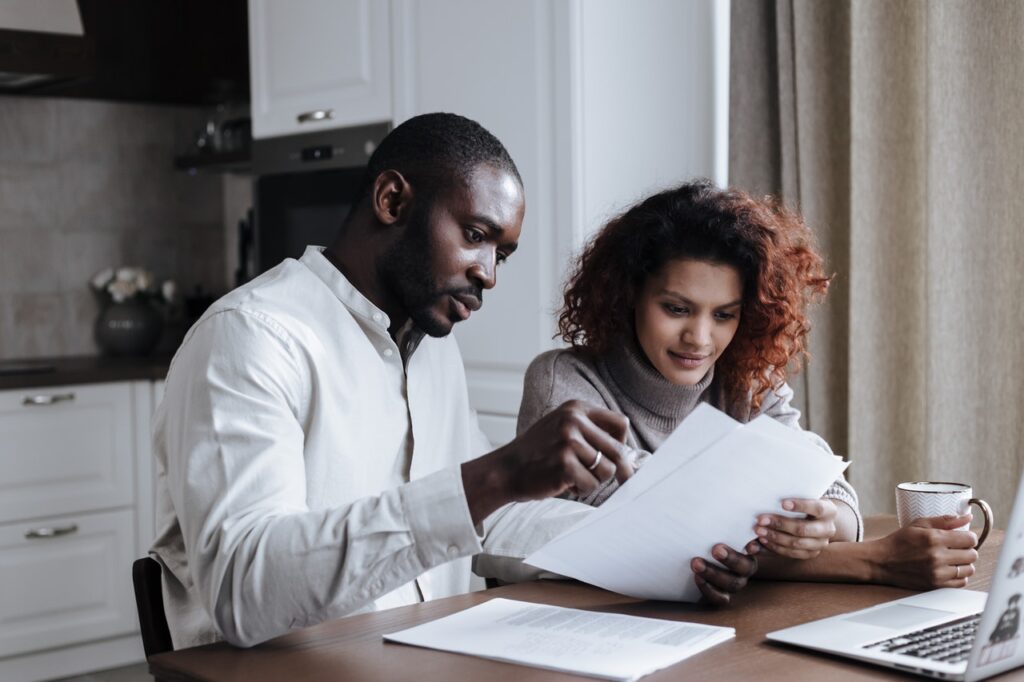 There are many things you need to figure out before buying a house of your own. These include knowing which neighborhood fits your lifestyle, which mortgage broker or banker offers the best mortgage options, how the real estate market is faring, and what changes in the rates are expected.
The housing market has been inundated with buyers competing for properties in recent years. This is driving home values up in many areas across the nation. Eventually, the market will correct and the values will either stabilize or fall. When that happens, you don’t want to be over-mortgaged in your home. Even through slumps, the market eventually rebounds, but you should buy with a complete understanding of the market you are buying in.
Understanding market rates requires thorough research and due diligence. Unless you are a real estate expert, this may sometimes be a tough ask. It is only logical that you consult a reliable mortgage company like Mares Mortgage to get a better grasp of how things work in this industry.
If you favor a particular area, you may want that to be the locale of your first home. And once you’re confident that you understand property values and the real estate market, it will be a good time to move forward in the buying process.
There are many things you need to figure out before buying a house of your own. These include knowing which neighborhood fits your lifestyle, which mortgage broker or banker offers the best mortgage options, how the real estate market is faring, and what changes in the rates are expected.
The housing market has been inundated with buyers competing for properties in recent years. This is driving home values up in many areas across the nation. Eventually, the market will correct and the values will either stabilize or fall. When that happens, you don’t want to be over-mortgaged in your home. Even through slumps, the market eventually rebounds, but you should buy with a complete understanding of the market you are buying in.
Understanding market rates requires thorough research and due diligence. Unless you are a real estate expert, this may sometimes be a tough ask. It is only logical that you consult a reliable mortgage company like Mares Mortgage to get a better grasp of how things work in this industry.
If you favor a particular area, you may want that to be the locale of your first home. And once you’re confident that you understand property values and the real estate market, it will be a good time to move forward in the buying process.
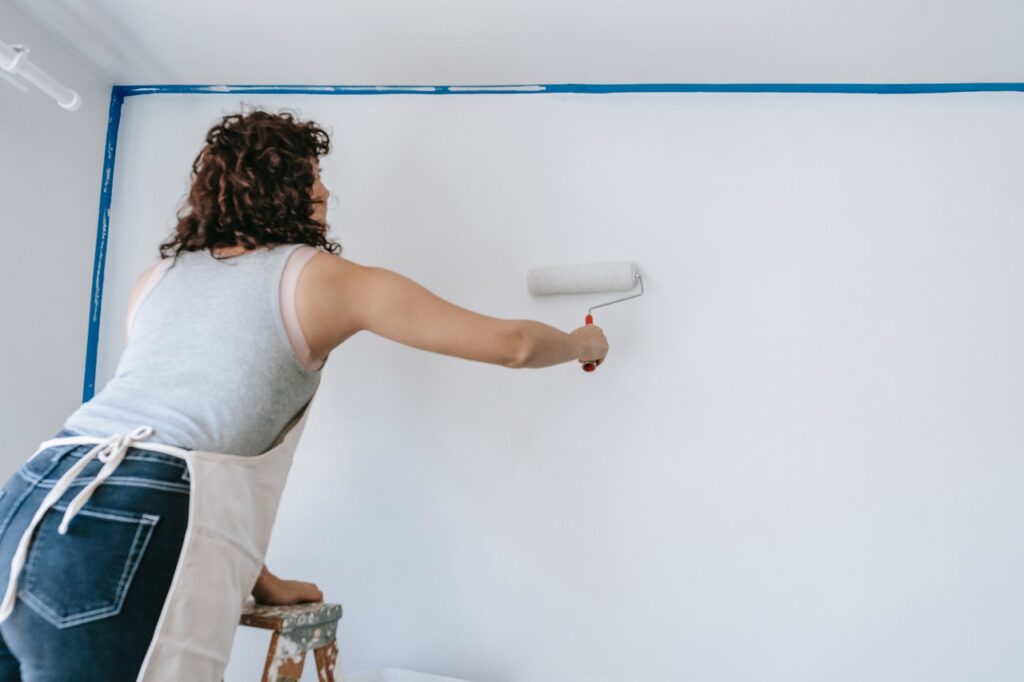 When you take on the responsibility of a house, you can expect things to break. When you’re a renter, you have the convenience of reporting any problems to your landlord and waiting for them to respond. But not so when you’re the owner. A broken dishwasher or a leaky faucet may seem like small things, but they can complicate daily life.
If you can do basic repair jobs yourself, you will save yourself a lot of money. But if you don’t have the know-how, repairs can be quite expensive and you should be prepared for that.
When you take on the responsibility of a house, you can expect things to break. When you’re a renter, you have the convenience of reporting any problems to your landlord and waiting for them to respond. But not so when you’re the owner. A broken dishwasher or a leaky faucet may seem like small things, but they can complicate daily life.
If you can do basic repair jobs yourself, you will save yourself a lot of money. But if you don’t have the know-how, repairs can be quite expensive and you should be prepared for that.
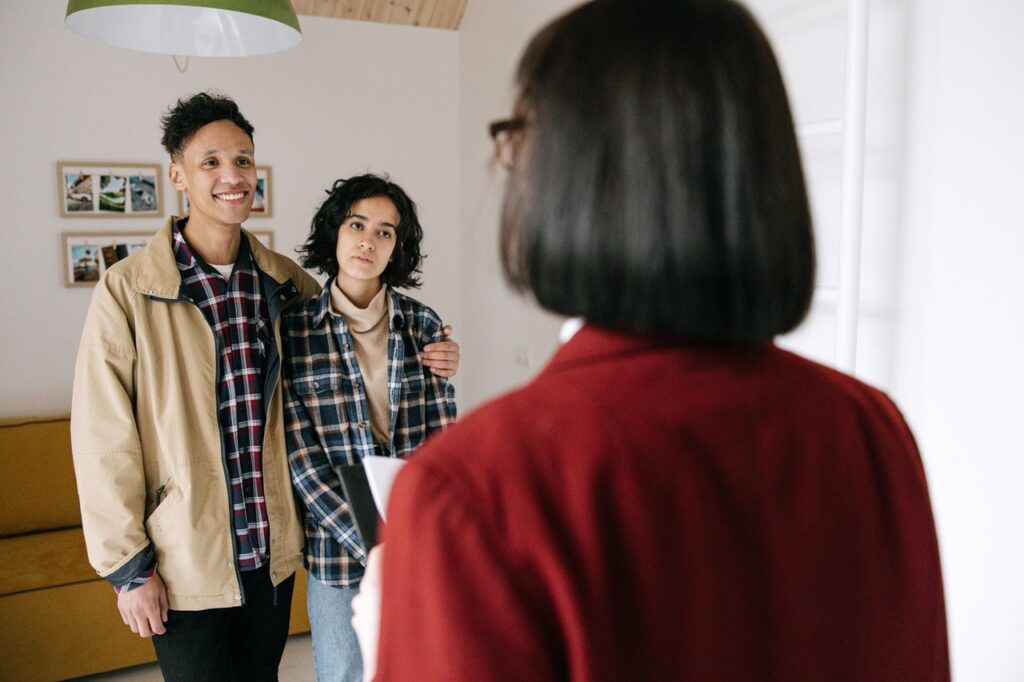 It’s not easy to admit, but most of us know when it’s time to move ahead with a big step in our lives. An overwhelming sense that the time is right, can also be an indicator that you’re ready to buy your first home. You just feel strong confidence that things are going to go well for you, and if challenges arise, you’ll be able to deal with them. While you don’t want to focus solely on the intuitive sense of confidence, you shouldn’t ignore it either.
It’s not easy to admit, but most of us know when it’s time to move ahead with a big step in our lives. An overwhelming sense that the time is right, can also be an indicator that you’re ready to buy your first home. You just feel strong confidence that things are going to go well for you, and if challenges arise, you’ll be able to deal with them. While you don’t want to focus solely on the intuitive sense of confidence, you shouldn’t ignore it either.
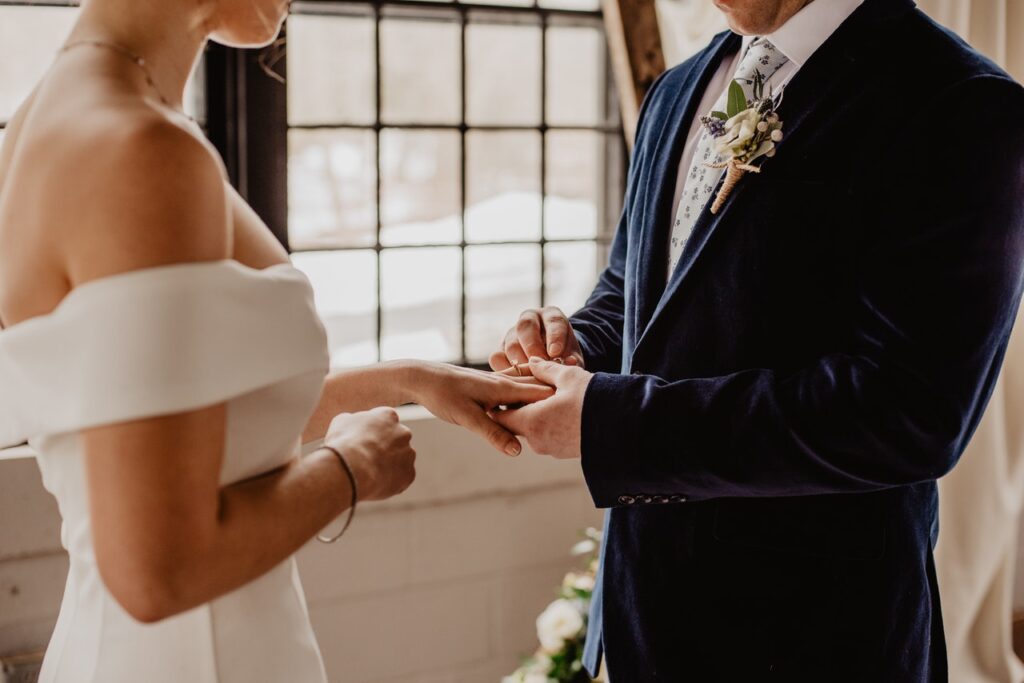 The decision to buy a house can be exciting and overwhelming because it’s a massive step in your life. But remember, you need the capital before you can make any purchase.
Ensure that you have no significant lingering expenses coming up. Events like a wedding or a newborn baby may cause a dent in your house-buying plans. Will these extra expenses limit you financially? If so, reconvene at a later date.
The decision to buy a house can be exciting and overwhelming because it’s a massive step in your life. But remember, you need the capital before you can make any purchase.
Ensure that you have no significant lingering expenses coming up. Events like a wedding or a newborn baby may cause a dent in your house-buying plans. Will these extra expenses limit you financially? If so, reconvene at a later date.
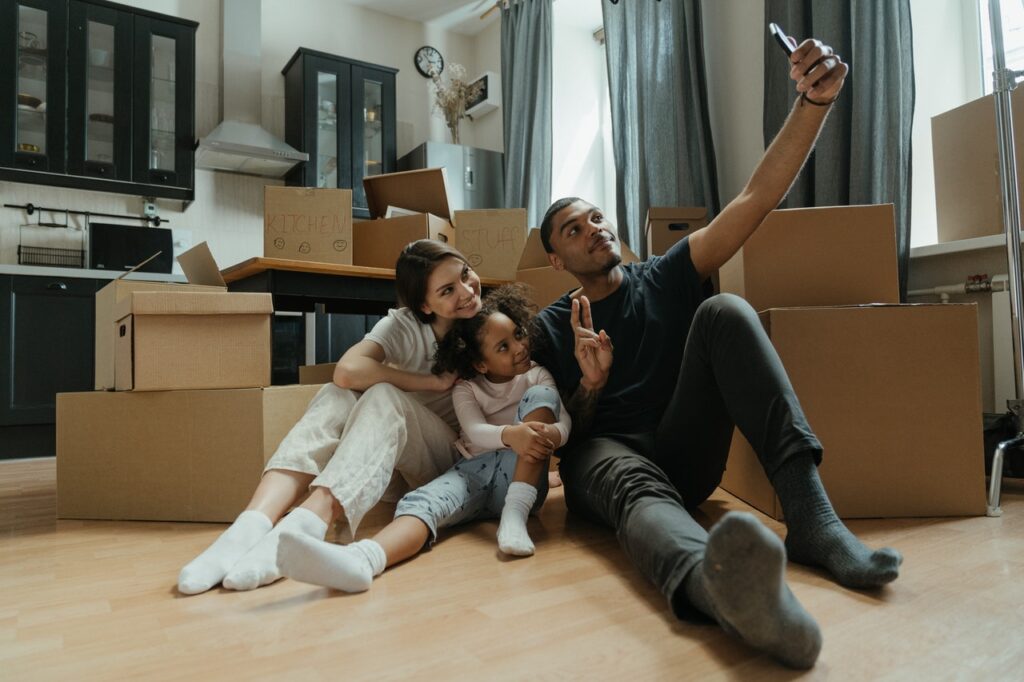 It’s a great feeling to buy your first home; it’s your baby and there’s so much you want to do with it. However, there’s a unique responsibility that comes with being a homeowner, before, as well as, after the process.
You have to be mentally and financially prepared to face all the challenges and duties about to come your way when buying your first home.
If you truly feel that your financial situation is secure enough and you can handle all the normal expenses, in addition to paying off your mortgage and other house-related expenditures, it’s time to take the leap. Homeownership is one of the most rewarding parts of adulthood.
Schedule a Free Consultation Today!
Related article: First Home Buying Tips and Tricks
Good luck!
It’s a great feeling to buy your first home; it’s your baby and there’s so much you want to do with it. However, there’s a unique responsibility that comes with being a homeowner, before, as well as, after the process.
You have to be mentally and financially prepared to face all the challenges and duties about to come your way when buying your first home.
If you truly feel that your financial situation is secure enough and you can handle all the normal expenses, in addition to paying off your mortgage and other house-related expenditures, it’s time to take the leap. Homeownership is one of the most rewarding parts of adulthood.
Schedule a Free Consultation Today!
Related article: First Home Buying Tips and Tricks
Good luck!
How to Know If You’re Ready to Buy Your First Home
Buying your first home is a very special and exciting experience. It’s a process that takes a lot of time and planning. You don’t wake up one day and suddenly decide to give away your savings to purchase a house. While some plan for it for years, others can seal the deal in a matter of weeks – the decision-making process varies from person to person. However, there are some universal signs that you’re ready to buy your first house:1. You Don’t Want to Rent Anymore
If you’re a young person who has been working for quite a few years, chances are you’ve been a tenant at one or more places already. While the nomadic life seems fun at first, after a while you just don’t want to rent or live with mom and dad anymore. Having a place to call your own has its benefits such as not having to answer to a landlord or a parent. Being a homeowner gives you freedom. Additionally, if you feel you belong in a particular city and feel quite certain that you will be staying there for several years, it is unquestionably a good idea to buy a home there. Buying a house rather than renting makes a lot of sense not only for young people but also for older folks. In any case, paying rent in your twilight years is a huge hindrance and strenuous on your savings. Related Video: Are You Ready to Move2. You Have a Secure Job
As a young adult, it may take a while to find a solid footing in your chosen profession. However, after working for a few years, you may finally find stability in a company and be ready for a long-term position. Having that job security will allow you to make financial decisions that you couldn’t before - which includes buying a house. If you have a job that offers you a good work-life balance, health benefits, and other advantages, you may want to make use of that security to invest in a house of your own. With your job security confirmed, you should contact Mares Mortgage right away for guidelines on how to get ready to buy a house. The formula that lenders use to assess your finances is called a debt-to-income ratio. For most lenders, the sum total of your debt payments and housing-related payments should equal no more than 43% of your total income. Some lenders may be more lenient, but if you tend to keep high balances on your lines of credit, this could get you in trouble when qualifying for a mortgage.3. Your Finances are in Good Shape
 Apart from a steady job, there are several ways to account for a steady financial situation. This could be through investments in real estate, the stock market, a part-time “side hustle” where you have followed your passion and turned it into a prosperous business on the side.
Just take a look at your finances, and see what the recurring monthly expenses are. Buying a house comes with additional costs such as a mortgage, utilities, and taxes, for the first few years. This means your current finances should cater to these costs as a pointer that you can afford and are ready to buy a house.
Learn the benefits both of locking in a payment that won’t change for 30 years and having a place to start your very own business that can act as a tax write-off. In any case, you should begin to consider pooling your savings towards a new home.
Apart from a steady job, there are several ways to account for a steady financial situation. This could be through investments in real estate, the stock market, a part-time “side hustle” where you have followed your passion and turned it into a prosperous business on the side.
Just take a look at your finances, and see what the recurring monthly expenses are. Buying a house comes with additional costs such as a mortgage, utilities, and taxes, for the first few years. This means your current finances should cater to these costs as a pointer that you can afford and are ready to buy a house.
Learn the benefits both of locking in a payment that won’t change for 30 years and having a place to start your very own business that can act as a tax write-off. In any case, you should begin to consider pooling your savings towards a new home.
4. You’re Ready for Commitment
A very good reason to buy your own house is if you’re planning to get married or are moving in with a partner. Having a studio or a one-bedroom apartment will be fine if you’re living on your own with a pet. However, if there’s someone else to consider in your life and the two of you are about to be married or move in together, you’ll need to plan together. This is the perfect opportunity to buy your first house and build on your partnership together. Moreover, you will be able to decide with your partner whether each one of you should contribute towards mortgage payments or not, and what amount each partner should pay. This will make your homeownership journey more fulfilling and gratifying. Commitment also relates to mental maturity – once you feel mentally responsible enough to get your own place, go for it.5. You Genuinely Need More Space
 Are you about to have a child? Then you definitely need more space. This is the perfect time to buy your own home. It’ll give your children more space to move about freely, without bumping into each other and invading personal spaces.
You might also need more room if you want to set up a corner for yourself – to practice hobbies, work from home, etc. Some extra breathing room from the kids is always a great add, either way.
However, never make a move if your finances are not right. You may genuinely need more space, but buying a house is only a good idea if you can manage to cover the extra expenses that come with homeownership.
Are you about to have a child? Then you definitely need more space. This is the perfect time to buy your own home. It’ll give your children more space to move about freely, without bumping into each other and invading personal spaces.
You might also need more room if you want to set up a corner for yourself – to practice hobbies, work from home, etc. Some extra breathing room from the kids is always a great add, either way.
However, never make a move if your finances are not right. You may genuinely need more space, but buying a house is only a good idea if you can manage to cover the extra expenses that come with homeownership.
6. You’re free of Debt
Paying bills and having debt is an obvious concern when you’re considering the additional expenses of a home. However, if you aren’t in any significant debt, and your credit card bills are clear, then now is a good time to consider investing in a new house. With money available to pay your mortgage and disposable income for the other expenses of owning a house - this is one of the safest periods to buy a home. Then again, with no more debt to worry about, your strong financial position will ensure you can cover the additional expenses associated with homeownership without much fuss.7. You Have a Good Credit Score
 When you apply for a mortgage, banks, and lenders will look at your credit score in order to ensure that you can pay them back on time. If you have a good credit score, you should have no worries.
Your credit score reflects on your past expenditures and activities related to timely repayments. A credit score above 720 is considered stellar, but yours can be anywhere between 300 to 850. Our team will provide a complimentary credit report and analysis to teach you how to boost your points before getting locked into a higher interest rate.
A higher credit score means you are more likely to qualify for lower interest rates on your monthly mortgage. This will make your decision to become a homeowner a more reasonable prospect.
Only once you’ve established a good credit score, should you consider homeownership, lest you be straddled with extremely high-interest rates.
Related Video: How Does My Score Impact My Loan
Free Credit Check Tool – sponsored by the government to run your credit once per year or follow our link to get a free triple score, absolutely no official application required, and our website is completely www.maresmortgage.com/credit-authorization/
When you apply for a mortgage, banks, and lenders will look at your credit score in order to ensure that you can pay them back on time. If you have a good credit score, you should have no worries.
Your credit score reflects on your past expenditures and activities related to timely repayments. A credit score above 720 is considered stellar, but yours can be anywhere between 300 to 850. Our team will provide a complimentary credit report and analysis to teach you how to boost your points before getting locked into a higher interest rate.
A higher credit score means you are more likely to qualify for lower interest rates on your monthly mortgage. This will make your decision to become a homeowner a more reasonable prospect.
Only once you’ve established a good credit score, should you consider homeownership, lest you be straddled with extremely high-interest rates.
Related Video: How Does My Score Impact My Loan
Free Credit Check Tool – sponsored by the government to run your credit once per year or follow our link to get a free triple score, absolutely no official application required, and our website is completely www.maresmortgage.com/credit-authorization/
8. You Have a Down Payment
Many experts say that you should have about 20% of the total cost of your house saved for a down payment. Even if you have 3% to 10% of it available outside of your other savings, consider yourself ready to buy a house depending on the area you plan to live. It would be ideal if you could pay 15% or 20% as down payment so that you can avoid the requirement of PMI (Private Mortgage Insurance). But if you’re unable to pay that much, here at Mares Mortgage, we have programs to eliminate PMI (Private Mortgage Insurance) without putting 20% down. When you are ready to buy a house, make sure you can cover the upfront fees. The more you pay as a down payment, the lower your monthly payments will be. This will make your financial position, post-purchase, much stronger. Related article: Benefits of Buying a Home9. Understand the Market
 There are many things you need to figure out before buying a house of your own. These include knowing which neighborhood fits your lifestyle, which mortgage broker or banker offers the best mortgage options, how the real estate market is faring, and what changes in the rates are expected.
The housing market has been inundated with buyers competing for properties in recent years. This is driving home values up in many areas across the nation. Eventually, the market will correct and the values will either stabilize or fall. When that happens, you don’t want to be over-mortgaged in your home. Even through slumps, the market eventually rebounds, but you should buy with a complete understanding of the market you are buying in.
Understanding market rates requires thorough research and due diligence. Unless you are a real estate expert, this may sometimes be a tough ask. It is only logical that you consult a reliable mortgage company like Mares Mortgage to get a better grasp of how things work in this industry.
If you favor a particular area, you may want that to be the locale of your first home. And once you’re confident that you understand property values and the real estate market, it will be a good time to move forward in the buying process.
There are many things you need to figure out before buying a house of your own. These include knowing which neighborhood fits your lifestyle, which mortgage broker or banker offers the best mortgage options, how the real estate market is faring, and what changes in the rates are expected.
The housing market has been inundated with buyers competing for properties in recent years. This is driving home values up in many areas across the nation. Eventually, the market will correct and the values will either stabilize or fall. When that happens, you don’t want to be over-mortgaged in your home. Even through slumps, the market eventually rebounds, but you should buy with a complete understanding of the market you are buying in.
Understanding market rates requires thorough research and due diligence. Unless you are a real estate expert, this may sometimes be a tough ask. It is only logical that you consult a reliable mortgage company like Mares Mortgage to get a better grasp of how things work in this industry.
If you favor a particular area, you may want that to be the locale of your first home. And once you’re confident that you understand property values and the real estate market, it will be a good time to move forward in the buying process.
10. You Feel Emotionally Prepared
Purchasing a new house is challenging in many ways. Regardless of whether you’re moving to the new place alone, with your partner, or with your family, the process can be overwhelming. So do this only if you feel emotionally ready and not involved in any other complicated situations. There will be several things that are likely to go wrong and hurdles that you will have to overcome. This kind of stressful situation can be made much worse if you aren’t mentally prepared. This also includes dealing with circumstances post-closing, such as decorating, unexpected repairs, or moving. Ready to buy a home? See how Mares Mortgage can help!11. Can You Do Repairs?
 When you take on the responsibility of a house, you can expect things to break. When you’re a renter, you have the convenience of reporting any problems to your landlord and waiting for them to respond. But not so when you’re the owner. A broken dishwasher or a leaky faucet may seem like small things, but they can complicate daily life.
If you can do basic repair jobs yourself, you will save yourself a lot of money. But if you don’t have the know-how, repairs can be quite expensive and you should be prepared for that.
When you take on the responsibility of a house, you can expect things to break. When you’re a renter, you have the convenience of reporting any problems to your landlord and waiting for them to respond. But not so when you’re the owner. A broken dishwasher or a leaky faucet may seem like small things, but they can complicate daily life.
If you can do basic repair jobs yourself, you will save yourself a lot of money. But if you don’t have the know-how, repairs can be quite expensive and you should be prepared for that.
12. You Know What Type of House You Want
Having put a lot of thought into the type of house you want is a good sign that you’re ready to buy your first home. Whether it’s a single-family home, a duplex, a townhouse, or a really nice apartment, you can choose according to the lifestyle you want. Some of these choices can have added financial benefits, such as being a less expensive first home, or as in the case of a duplex, a rental income - if you live on one side and rent out the other side. The main benefit of having your own home is that you have more control over how it looks. For instance, you can replace the fixtures, change the color of the walls, and make other modifications as you deem fit. Only one big question remains: are you ready to cover these costs?13. Honesty
A sign that you’re actually ready to buy your first home and not just fantasizing about is, is that you are being honest with yourself about where you are financially and what you can afford. While it’s exciting to dream about huge, elaborately furnished mansions with extensive landscaping. But most of us won’t be able to afford a lavish home at the beginning of the ownership journey. It’s more realistic to buy a modest and affordable first home, while you build your savings toward your forever home. There is also work to do in buying a home - the preparation and the process. When you can honestly say that you’re ready for that work, you’re ready.14. It Feels Right
 It’s not easy to admit, but most of us know when it’s time to move ahead with a big step in our lives. An overwhelming sense that the time is right, can also be an indicator that you’re ready to buy your first home. You just feel strong confidence that things are going to go well for you, and if challenges arise, you’ll be able to deal with them. While you don’t want to focus solely on the intuitive sense of confidence, you shouldn’t ignore it either.
It’s not easy to admit, but most of us know when it’s time to move ahead with a big step in our lives. An overwhelming sense that the time is right, can also be an indicator that you’re ready to buy your first home. You just feel strong confidence that things are going to go well for you, and if challenges arise, you’ll be able to deal with them. While you don’t want to focus solely on the intuitive sense of confidence, you shouldn’t ignore it either.
15. You Know When To Call In the Professionals
A sign of readiness is to know when the knowledge you need must be gained from the industry professionals. You know you need to find an expert realtor who can show you homes in your price range and explain any relevant information you need to know. You know that you need to find a good lender who will present all of your options, with a view to finding the best one for you. You realize you’ll need a buyer’s agent - one who is working solely for your benefit and not the seller’s.When Should You Not Buy a House?
Although there are plenty of signs that you should buy your first house, they can be overwhelming. It may lead to you second-guess yourself about if you’re actually ready. That may not be all that bad. It can cause you to take a second look at your finances and situation, which could be beneficial. If you’re still feeling troubled, then maybe it’s not the right time. Here are some reasons when you shouldn’t buy a house.1. Buying It As An Investment
If you’re looking for a house to buy and then sell in a few years, it would be a waste of time. Over the last 100 years, the average price of a home has only gone up by 3%. When you take inflation and other homeowner costs into consideration, there’s not that much money to be made from selling a single-family home. It would serve a better purpose if you bought that home for the sole purpose of building your family. That way, you’ll have some stability rather than looking for the next best house.2. You Have No Emergency Savings
To buy a house, you need to have money saved up. Without any saved money, it will be hard to put a down payment on the house. But instead of regular house savings, you’ll also need to have emergency savings in the event of a financial crisis. You should have the equivalent of a few years of living expenses set aside in your emergency savings fund. If you cannot put anything aside for these savings, you may want to reconsider buying a house until a later time.3. Other Major Expenses Coming Up
 The decision to buy a house can be exciting and overwhelming because it’s a massive step in your life. But remember, you need the capital before you can make any purchase.
Ensure that you have no significant lingering expenses coming up. Events like a wedding or a newborn baby may cause a dent in your house-buying plans. Will these extra expenses limit you financially? If so, reconvene at a later date.
The decision to buy a house can be exciting and overwhelming because it’s a massive step in your life. But remember, you need the capital before you can make any purchase.
Ensure that you have no significant lingering expenses coming up. Events like a wedding or a newborn baby may cause a dent in your house-buying plans. Will these extra expenses limit you financially? If so, reconvene at a later date.
4. You Plan On Moving Soon
When you buy a house, it’s essential to make sure that you plan to stay long-term. Why? It will lower costs if you decide to sell in the future. If you move to a new location with the plan to move in less than five years, it may break the bank. It takes roughly five years to break even on your household payments, so if you move before then, there’s not much time to save money. There are considerable expenses involved in moving, plus you’ll have to give your realtor at least 6% of the sale price once it’s finalized. So the longer you stay in one home, the more money you can save as a result.5. Your Credit Score Has Taken a Hit
Your interest rate and therefore your total monthly mortgage payment is tied to your creditworthiness. While you may be able to get a mortgage with a credit score in the low 500s, you’ll be paying much more. If you’ve already bit the bullet, refinancing can help, but for most buyers, they need a few years to build equity in their home before it’s a real possibility. And even then, there are additional closing costs to consider on the refinance. You’ll be in much better shape if you delay your home buying plans and focus on raising your credit score instead.6. You’re Not Financially Ready for your Dream Home
Buying a home is a long-term investment. You’ll want to stay put for at least five years in most markets. So, if you can’t afford the mortgage on the type of house you long to call home you may be tempted to settle for something smaller and cheaper. In the long run, compromising may be a mistake. Circumstances change with time and in a couple of years, your income may make affording your dream home a possibility. Money experts recommend keeping your mortgage payment to 30% or less of your total take-home pay. Committing more than that to your monthly payment may be setting you up for financial trouble from the get-go.7. You’re Relying on Alternative Financing Programs or Private Mortgage Insurance
It’s true, there are plenty of ways around the traditional rules for obtaining a mortgage. If you don’t have any money saved apart from your emergency fund, you are probably not ready for homeownership. Most mortgage companies like to see a 20% down payment for a well-qualified borrower. But a good rule of thumb is to be able to come up with at least half of that, or 10% down. While it is possible to get help from family members or government programs to make a down payment, it is more important that you have good savings practices established. If you rely on lower down payments you will be shelling out more on your monthly payments for private mortgage insurance. Plus, if you aren’t a saver, every home repair that pops up will derail your finances and drain your emergency fund.Final Word
 It’s a great feeling to buy your first home; it’s your baby and there’s so much you want to do with it. However, there’s a unique responsibility that comes with being a homeowner, before, as well as, after the process.
You have to be mentally and financially prepared to face all the challenges and duties about to come your way when buying your first home.
If you truly feel that your financial situation is secure enough and you can handle all the normal expenses, in addition to paying off your mortgage and other house-related expenditures, it’s time to take the leap. Homeownership is one of the most rewarding parts of adulthood.
Schedule a Free Consultation Today!
Related article: First Home Buying Tips and Tricks
Good luck!
It’s a great feeling to buy your first home; it’s your baby and there’s so much you want to do with it. However, there’s a unique responsibility that comes with being a homeowner, before, as well as, after the process.
You have to be mentally and financially prepared to face all the challenges and duties about to come your way when buying your first home.
If you truly feel that your financial situation is secure enough and you can handle all the normal expenses, in addition to paying off your mortgage and other house-related expenditures, it’s time to take the leap. Homeownership is one of the most rewarding parts of adulthood.
Schedule a Free Consultation Today!
Related article: First Home Buying Tips and Tricks
Good luck! 



